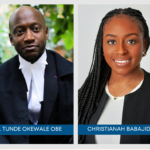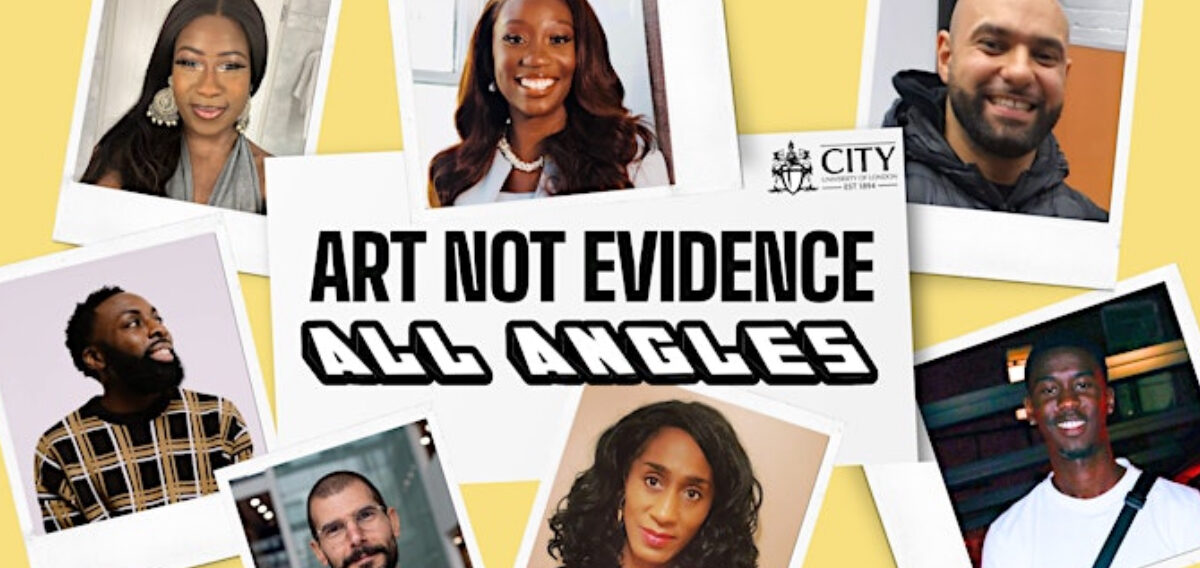
How to manage exam stress
July 26, 2024
Dr. Tunde Okewale OBE on his Nigerian Heritage, Urban Lawyers, and Overcoming Adversity
July 26, 2024By Abigail Wonga.
Reading time: three minutes
On Thursday 25 July, I had the pleasure of attending the event: ‘Art Not Evidence: All Angles’ at City, University of London. The panelled event aimed to bring together experts from diverse fields (law, music, academia, youth work and journalism) to discuss the racist suppression of rap music. Systemic racism impacts the intersections of Black music culture and youth justice.
Concerning law, diversity, equity, and inclusion (D&EI) is crucial to understanding the racial suppression ethnic minorities face and employers at law firms educating themselves on issues that disadvantaged communities endure.
Read this article to find out about firms setting the standard for inclusion in the workplace: https://thestudentlawyer.com/2024/05/28/embracing-diversity-setting-the-standard-for-inclusion-in-the-workplace/
Dr Lombros Fatsis, senior lecturer of Criminology at City, University of London, chaired the discussion with the following speakers:
- Dr Yusef Bakkali;
- Anefiok Ekpoudom;
- Angela Francis;
- Cecilia Goodwin;
- DALI/David Likinyo and;
- Ife Thompson.
The outline from this discussion was that the Black community is over-policed and under-protected. According to the research project Prosecuting Rap: Criminal Justice and UK Black Youth Expressive Culture at The University of Manchester, there is a growing concern about the way rap is being interpreted and used by police and prosecutors. Successful rappers in the UK including but not limited to, Stormzy and SantanDave can leverage an extensive career in this genre of music, however, this is not the case for some of the other musical counterparts. Rap lyrics at times relate to particular offences such as murder, grievous bodily harm, sexual assault, etc.
However, this has been argued by experts and commentators as ‘unreliable and prejudicial’, which shouldn’t be used as a form of evidence in courts as it invokes racist stereotypes and tropes of gang culture. The censorship of rap by the police has been considered oppressive and lacking in accountability. Speaker, Anefiok Ekpoudom’s ‘Where We Come From: Rap, Home & Hope in Modern Britain’ provides social history on the intersections of British rap and grime using interviews from notable artists, especially Giggs on adversities he faced at the height of his musical career.
Read this article on the importance of celebrating Black History Month: https://thestudentlawyer.com/2024/03/06/celebrating-black-history-month-2024/
From this event, I learned how rap culture in the courts has affected the legal processes of vulnerable young people in the criminal justice system. The panellists provided valuable insights into the war that is happening on drill music. As an aspiring legal practitioner, hoping to specialise in criminal law, looking at the injustices disadvantaged communities face (particularly to young Black men), it is crucial to address the very issues such marginalised people face. The importance of this issue remains a concern because the beauty of Black art and culture is what is being used against us by those who are sworn to protect and uphold the rights of citizens – which include young, old and middle-aged Black people.
Post-event reflections
After the event, I had the opportunity to network with the panellists and ask questions concerning the issues the Black community faces. What I left remembering from the questions answered by the panellists is the significance of unity. Racial traumas, as noted by the speakers, have caused a rapid increase in insensitivity and trivialisation of Black pain. The legal system has proven to cause a ‘spirit murder’ for young Black people.
Read this article learn about the importance of firms prioritising D&I: https://thestudentlawyer.com/2024/01/03/lets-talk-about-diversity-in-law/
Overall, I believe that law firms are doing their best to ensure that there is equality and equity in recruitment, DE&I and its values and I had the pleasure once again of attending this event, which has amplified my passion for social justice, equality and reignited my ‘why’ in pursuing a legal career.





